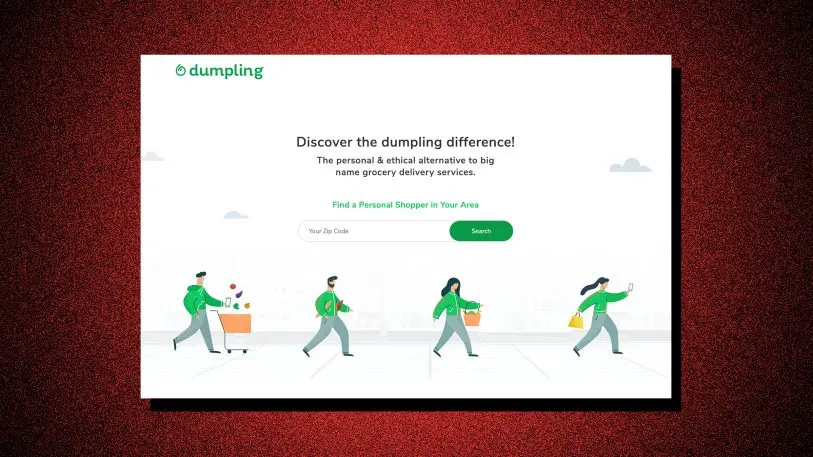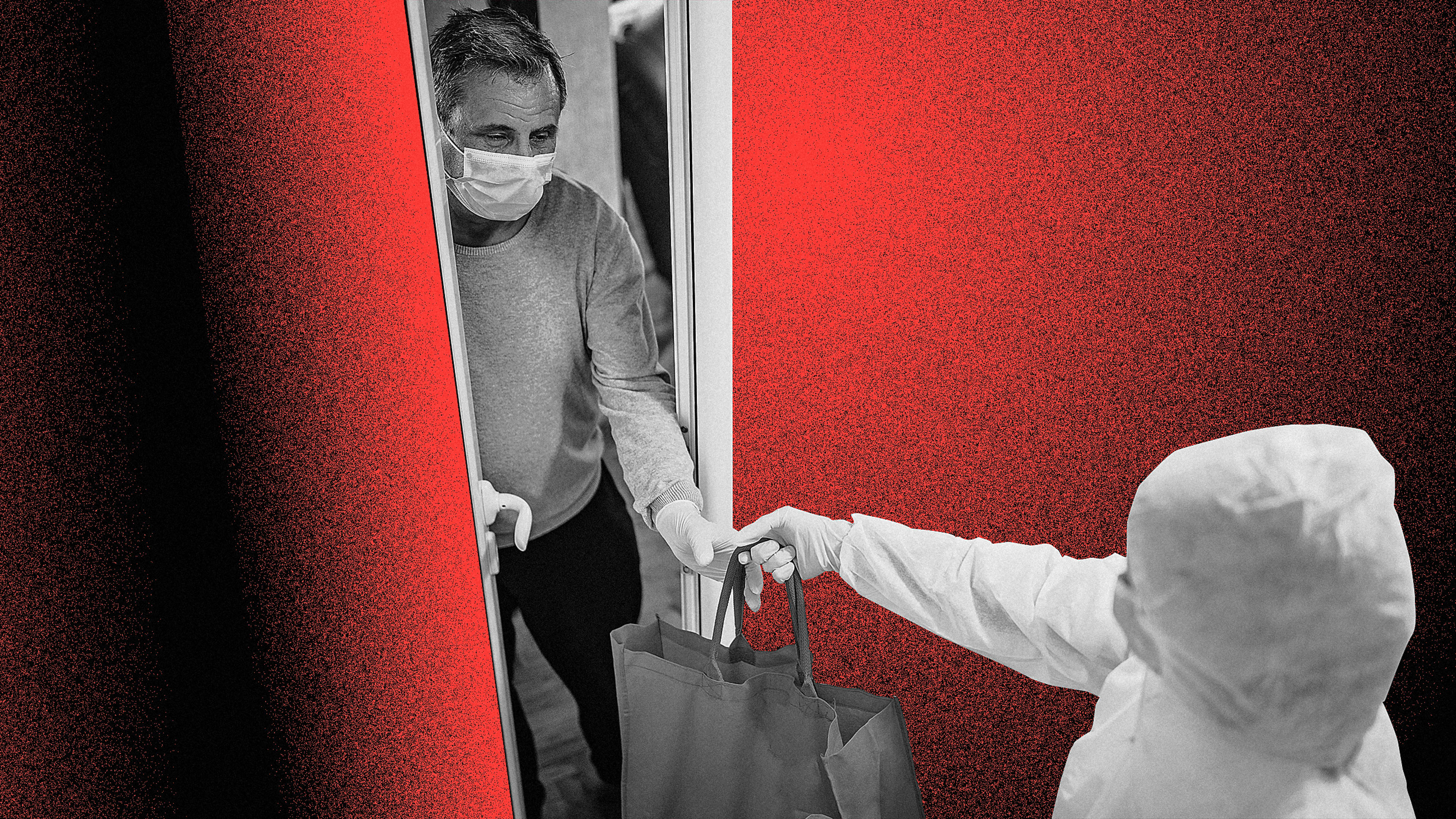Orders for groceries are surging at Instacart and Amazon in the age of coronavirus—and delivery workers who spend hours shopping for other people are putting their health at risk. Around the country, these delivery people have engaged in campaigns and work stoppages to protest the lack of protective equipment and sick leave provided by their employers. But many people do need groceries delivered during this time, so what’s the best way to do it?
If you don’t feel safe going to a supermarket to shop and wait in long lines with other shoppers who may be sick, it’s reasonable to question whether it’s ethical to ask a low-wage worker to do the same thing on your behalf. The answer isn’t simple; if a gig worker relies on orders to make a living, not ordering could affect their ability to pay their bills. But the sheer volume of deliveries now makes that unlikely. (Instacart said in March that its sales in California were 20 times larger than usual, and it now plans to bring on 300,000 new workers.)
If you don’t face particular risk from shopping yourself, you may want to rethink using delivery. In many places, delivery services have been so overwhelmed with orders that some of the people who need it most, including disabled people who relied on grocery delivery prior to the coronavirus crisis and those who are most at risk if they get COVID-19, say that they are struggling to find available delivery slots. Going to the store yourself is not a full pass from ethical questions, however, as grocery store workers are starting to get sick and die, as well. Ideally, you can shop at stores that provide their workers with proper protection, and try to shop as little as possible.
In the U.K., major grocery stores have restricted delivery to only those who are in the most vulnerable groups.”There are ways in which it can be abused, but the society as a whole is functioning in a way to try to ensure that deliveries are made only to people who otherwise may not be able to get groceries,” says Jeff McMahon, a moral philosopher at the University of Oxford. The same restrictions haven’t happened in the U.S., but McMahon suggests that young, healthy people should voluntarily avoid delivery. “I think if you’re 28 years old or 30 years old and you can put on a mask and gloves and go to the supermarket yourself, you ought to do so out of fairness to disabled people, elderly people, and others who can’t. Leave the delivery services for the use of those who really need them.”

In March, he says that business owners using his platform had an average take-home pay for each job of $33, “an order of magnitude higher than the average that you see on other online delivery apps.” The platform has around 1,000 shoppers now, and Shapiro says that the number is quickly growing, but it’s not available everywhere yet.
When you place an order, be patient if items are out of stock, says Manal Kahi, who runs Eat Offbeat, a catering service in New York City with refugee cooks, which recently pivoted to delivering “stay at home” meal kits. “The best thing our customers can do to help and be ethical right now is to be flexible and understand that production and distribution are incredibly challenging, as we implement increasingly tough precautionary measures to protect our team and customers,” she says. “They can’t expect Amazon-level speed of service (although we do our best to compete).”
Smaller mission-driven companies, such as Imperfect Foods, which uses employees rather than contractors to deliver boxes of misshapen produce to help fight food waste (Update: Imperfect is now using some temp workers to help fulfill its massive upswing in orders), are generally also better choices for ensuring worker safety. For those who can’t safely leave home right now, finding neighbors providing mutual aid is another good option.
If you do end up turning to a service like Instacart or Amazon, tip generously, as if the person is risking their health to bring you food. On Instacart, workers say that the average pay per order is just $7.
“We shouldn’t be risking our lives for $7,” Sarah Clarke, an Instacart worker and an organizer for the Gig Workers Collective, told Jacobin. Some Instacart workers went on strike last week to ask for personal protective equipment, an extra $5 per order of hazard pay, 14 days of sick time for anyone impacted by COVID-19 with a doctor’s note or preexisting conditions that place them at risk, and a default 10% tip in the app.
The company is now offering sick leave, but only if someone tests positive, at a time when few people are being tested, and will offer some bonuses and personal protective equipment. It’s not clear how quickly workers will be able to get the masks and other supplies that they need. And in the last week, at least four groups of Instacart workers were told that they might have been exposed to the new coronavirus on the job.
Recognize your company's culture of innovation by applying to this year's Best Workplaces for Innovators Awards before the extended deadline, April 12.
